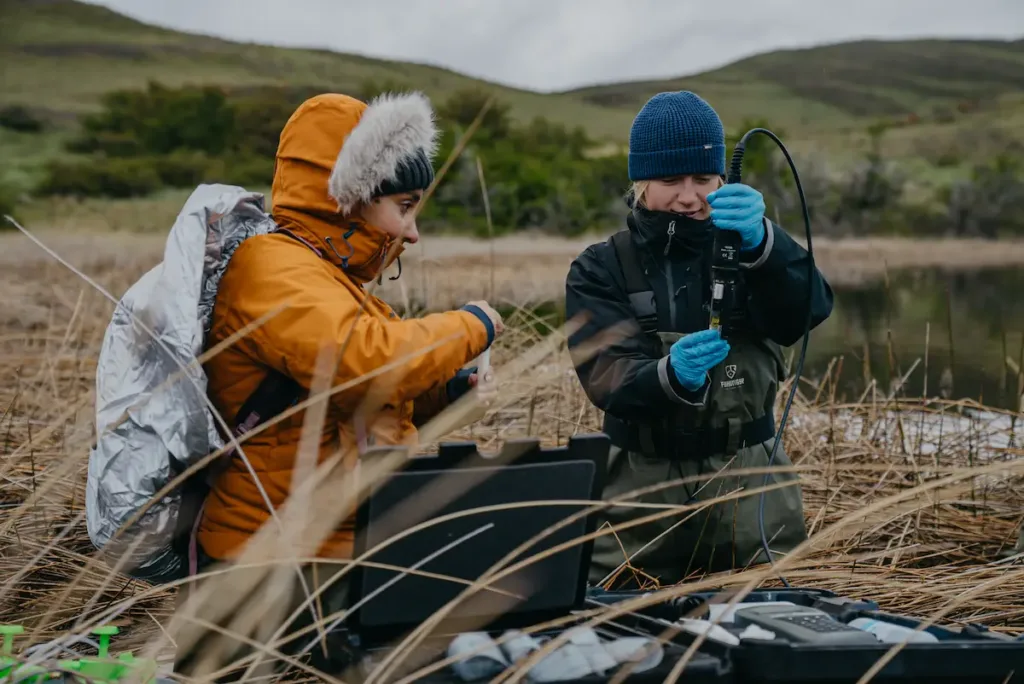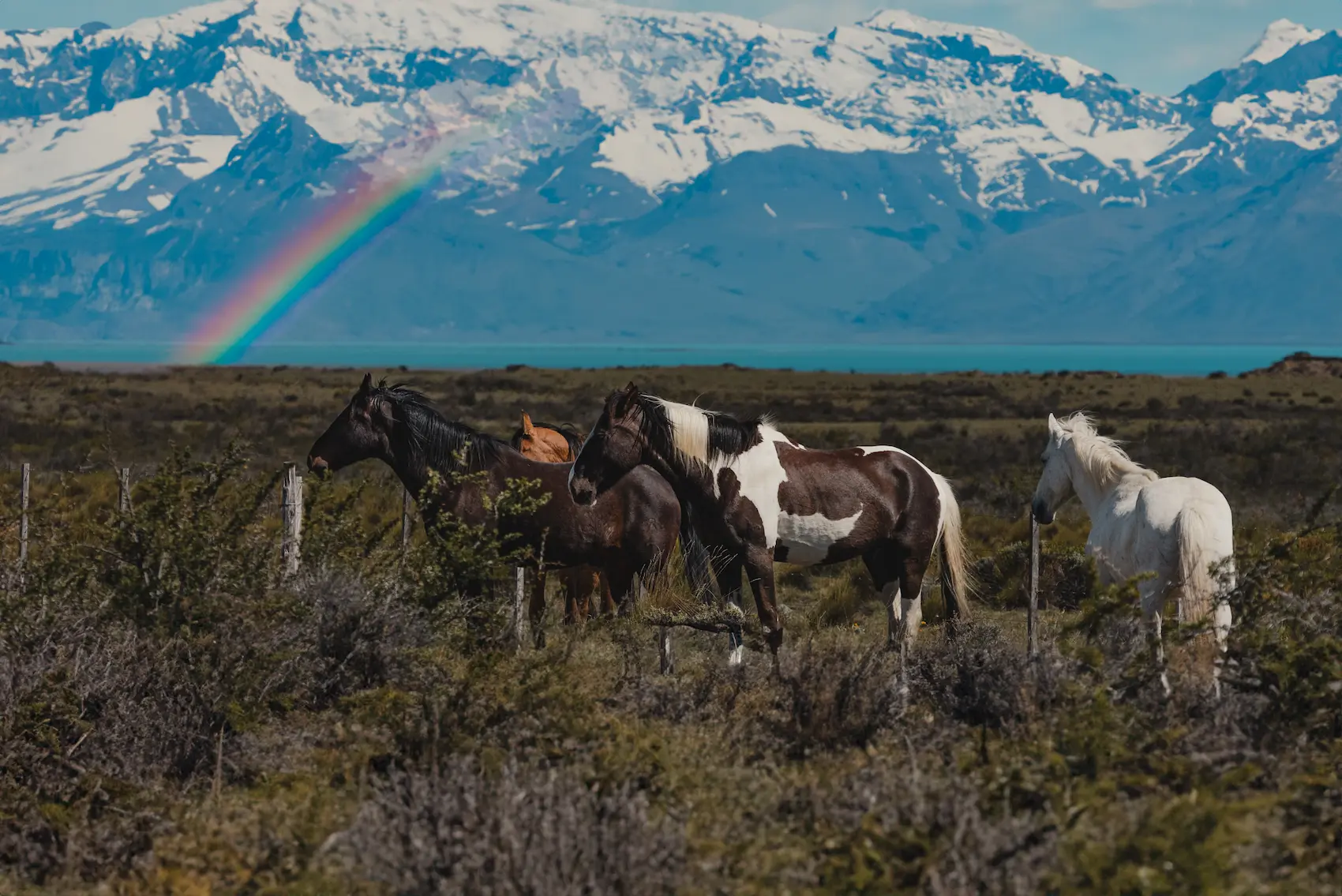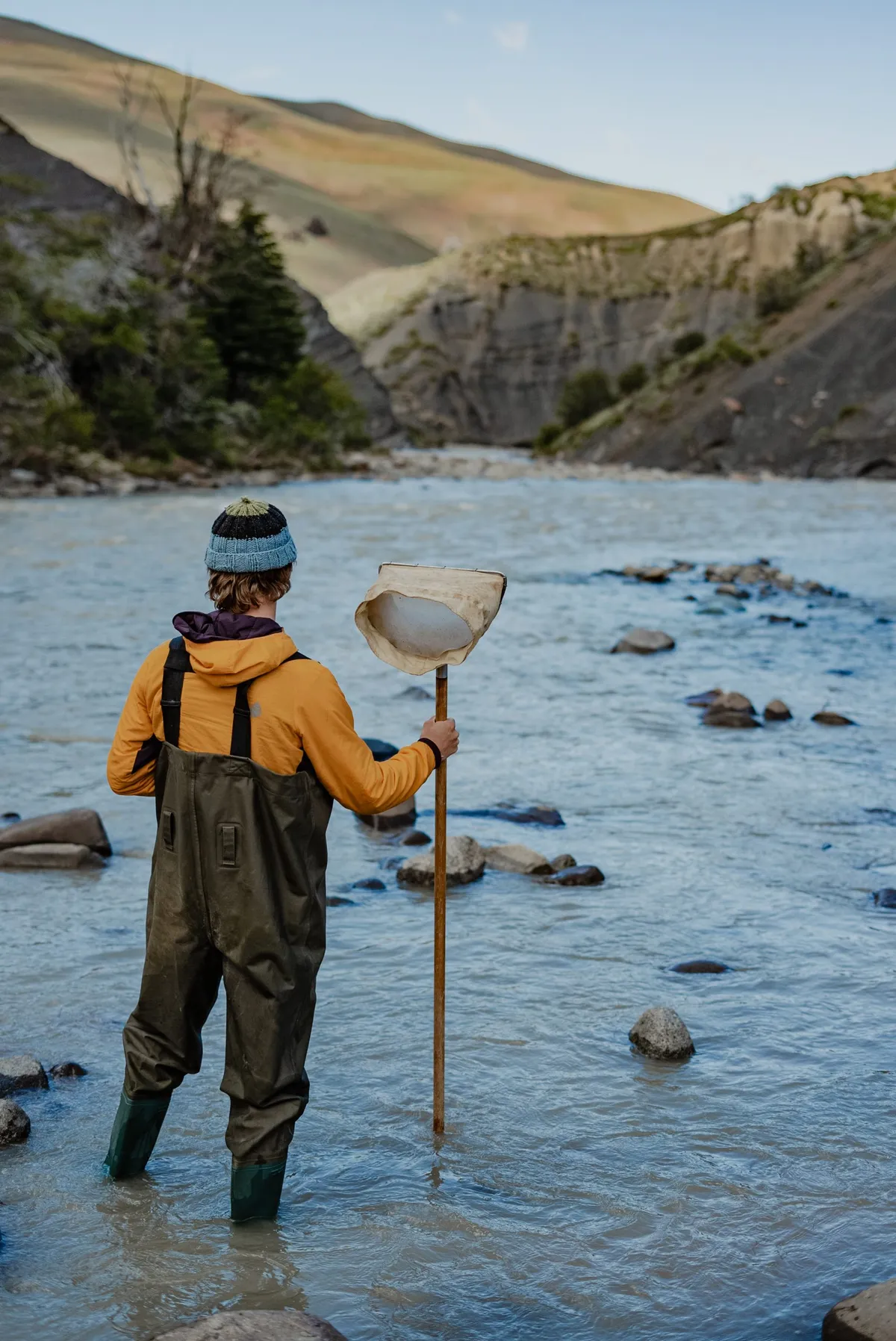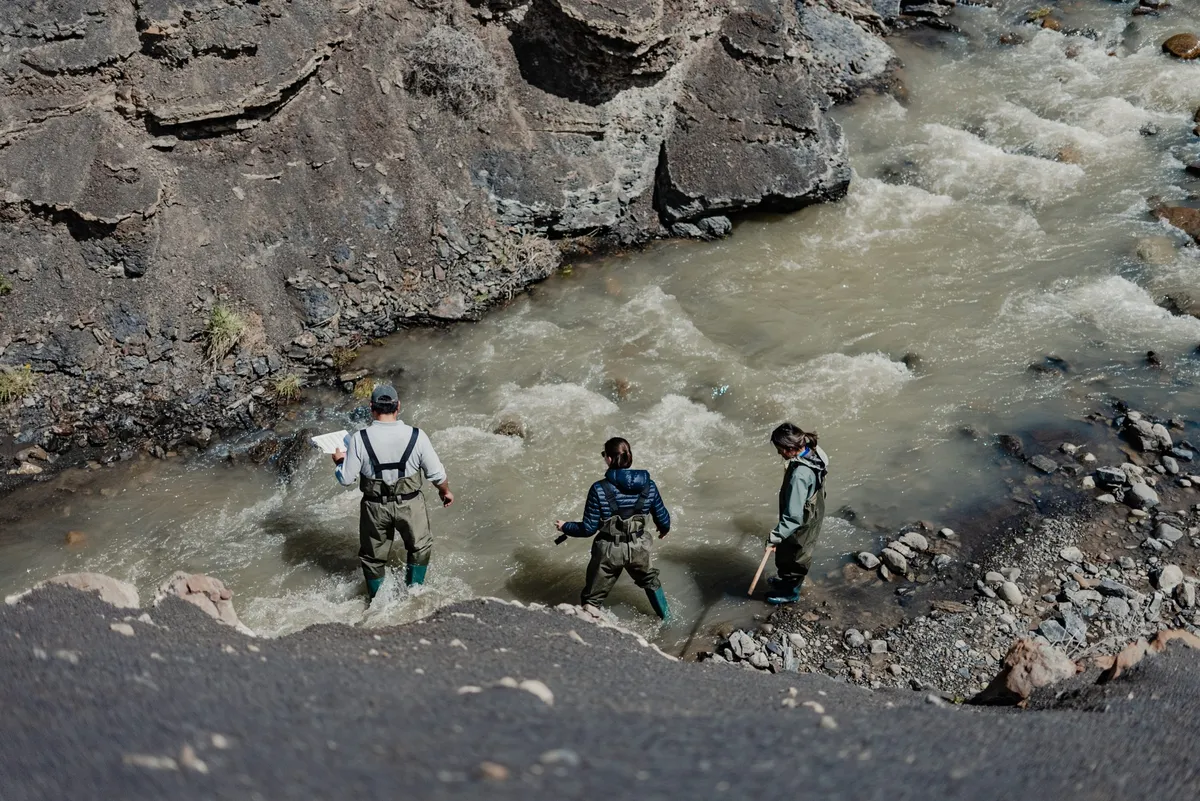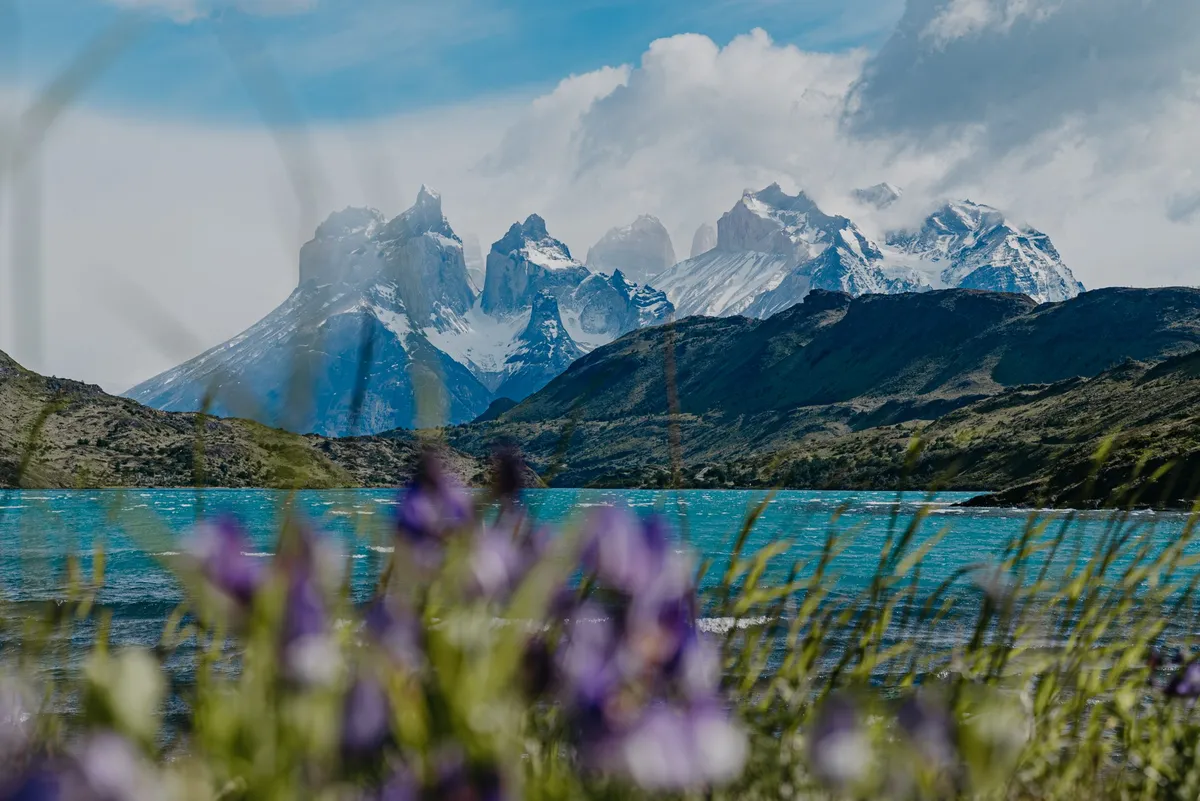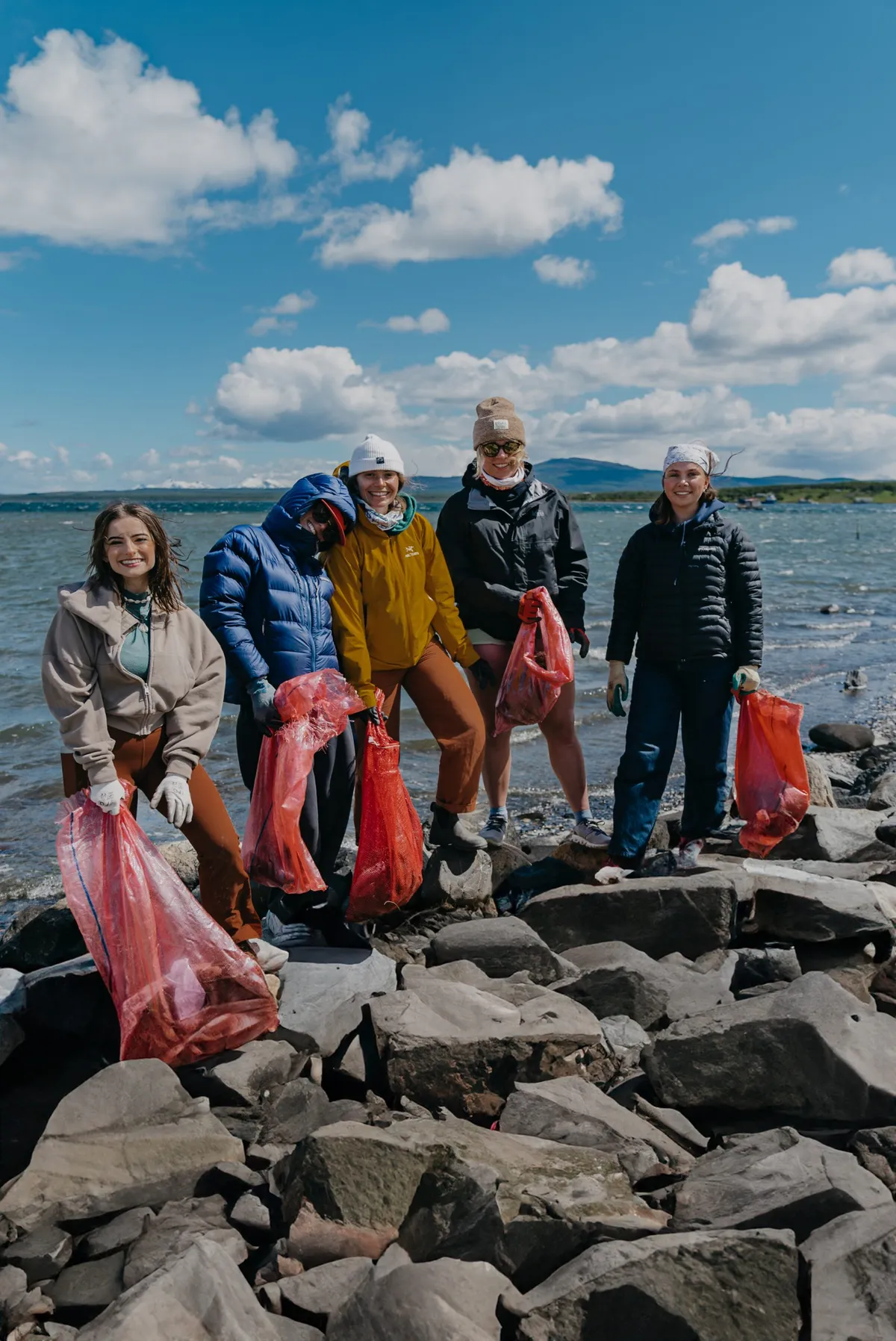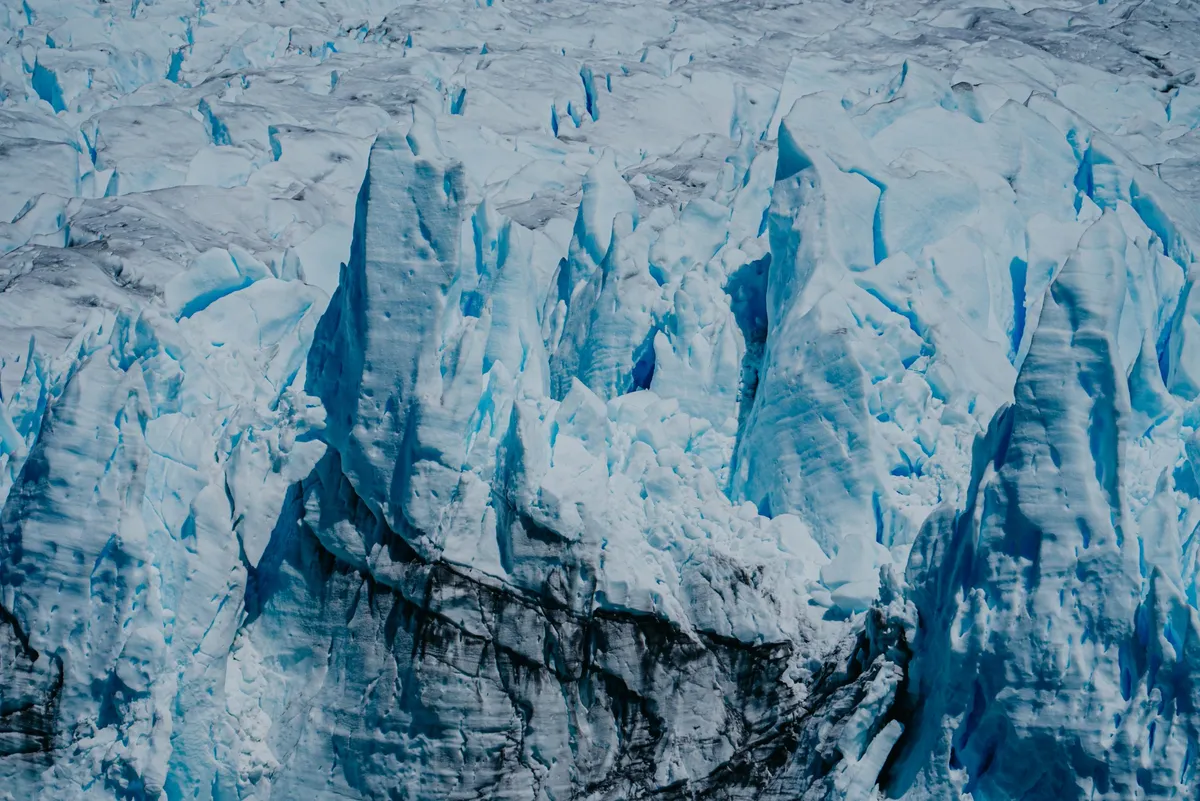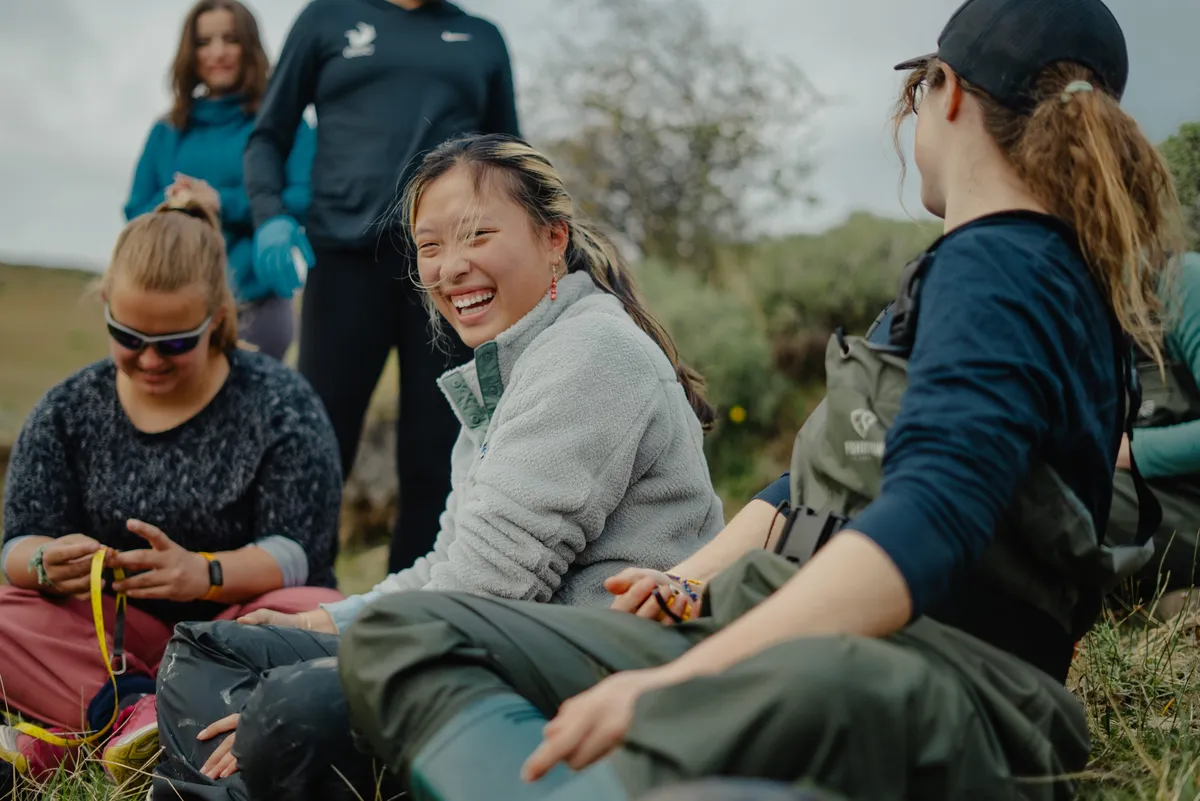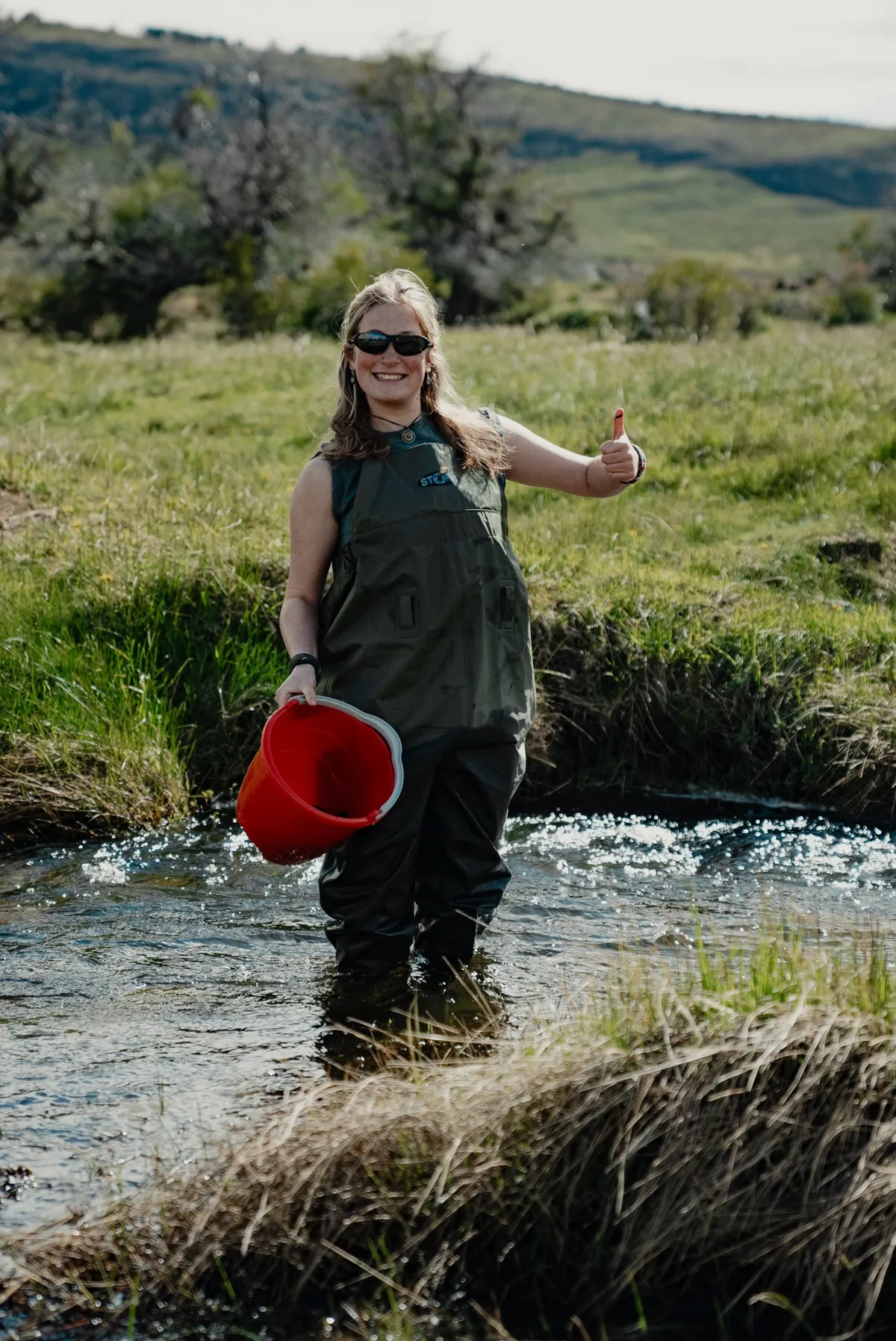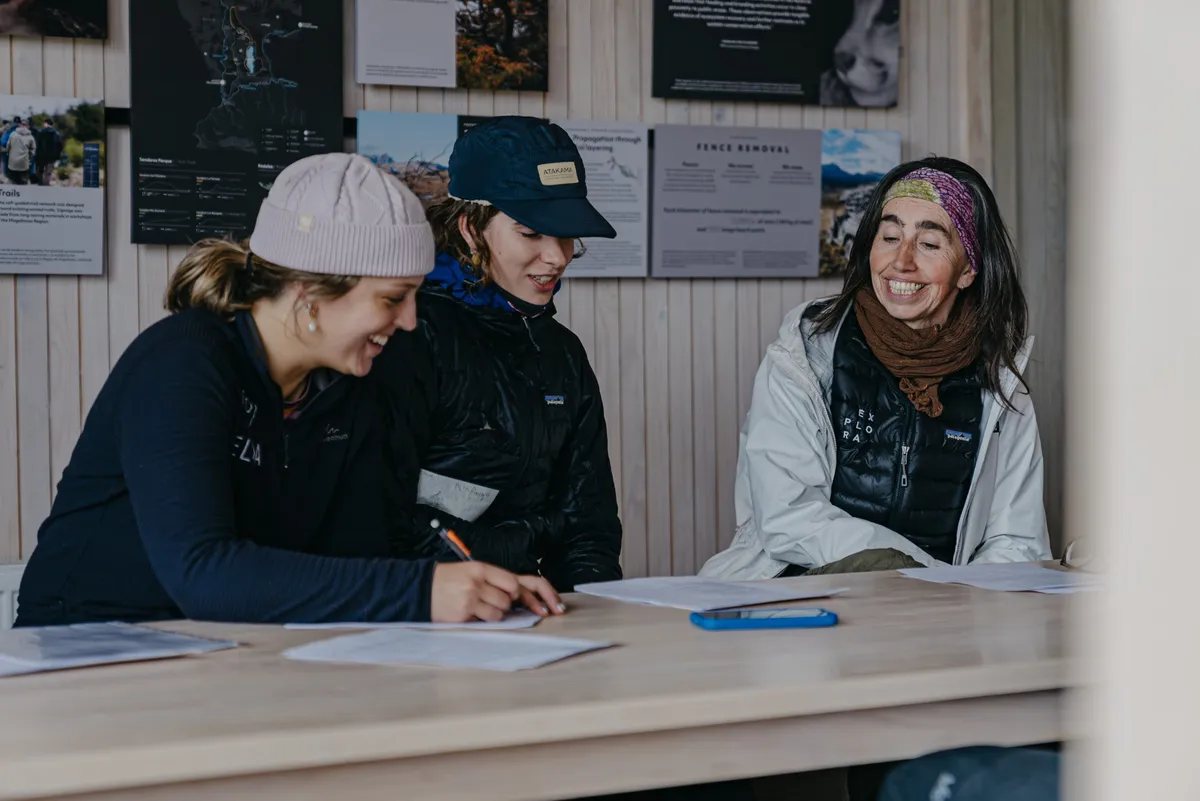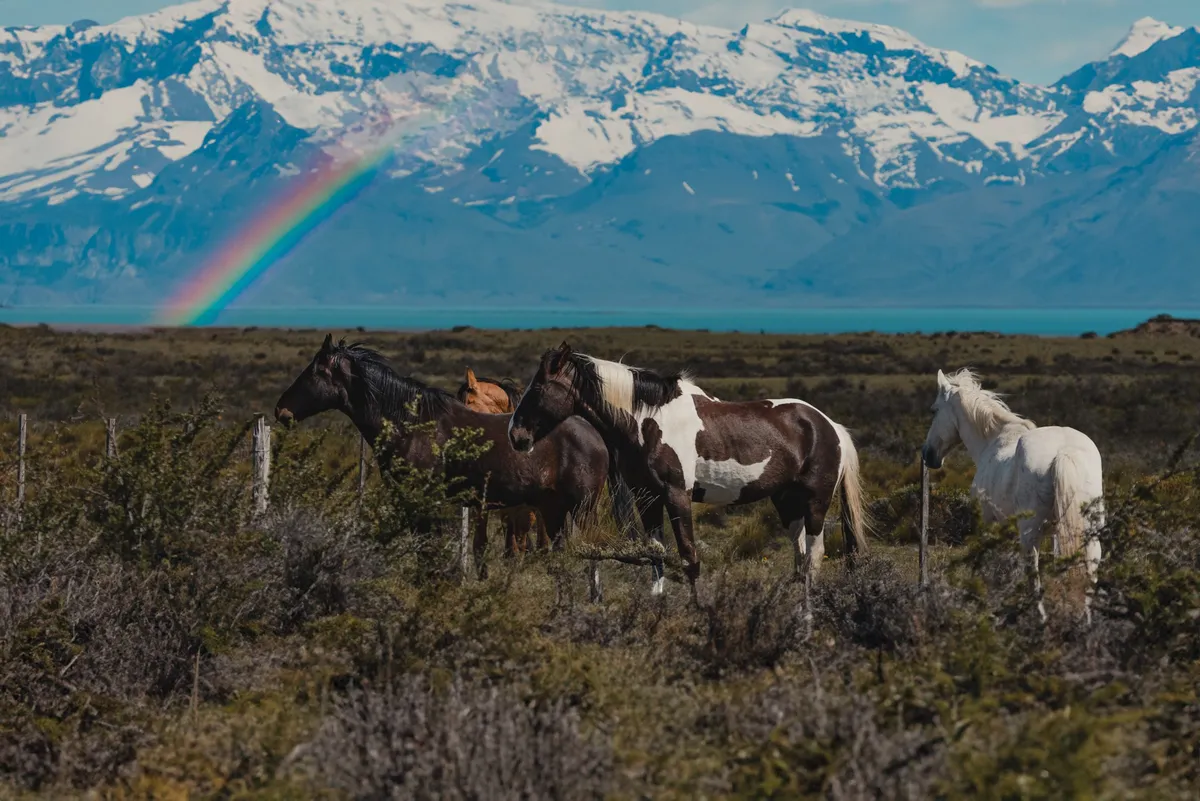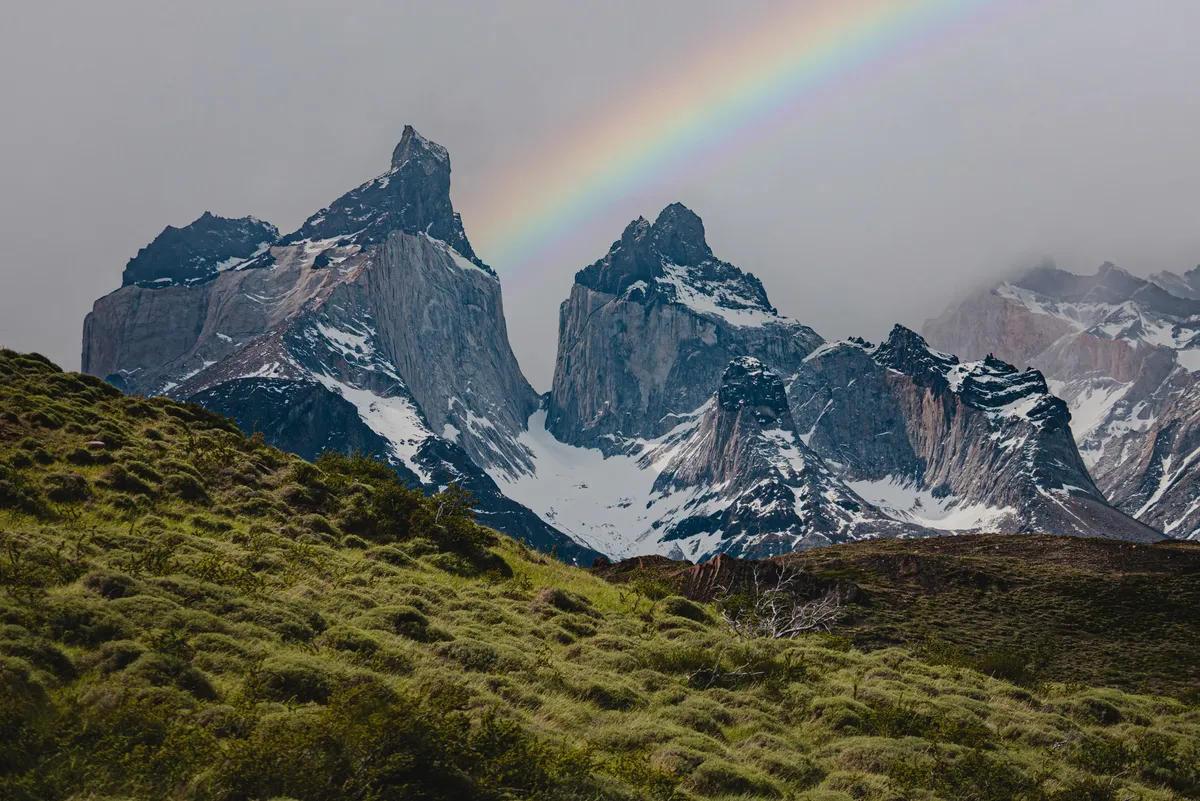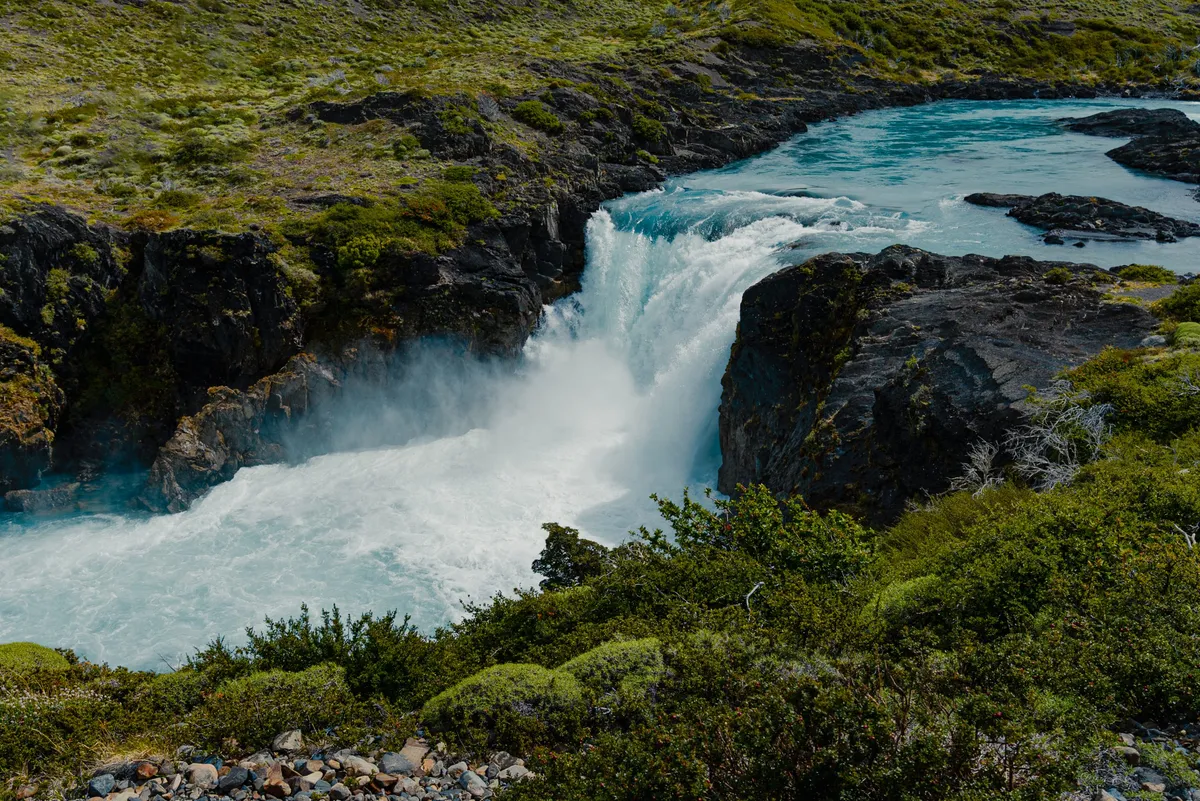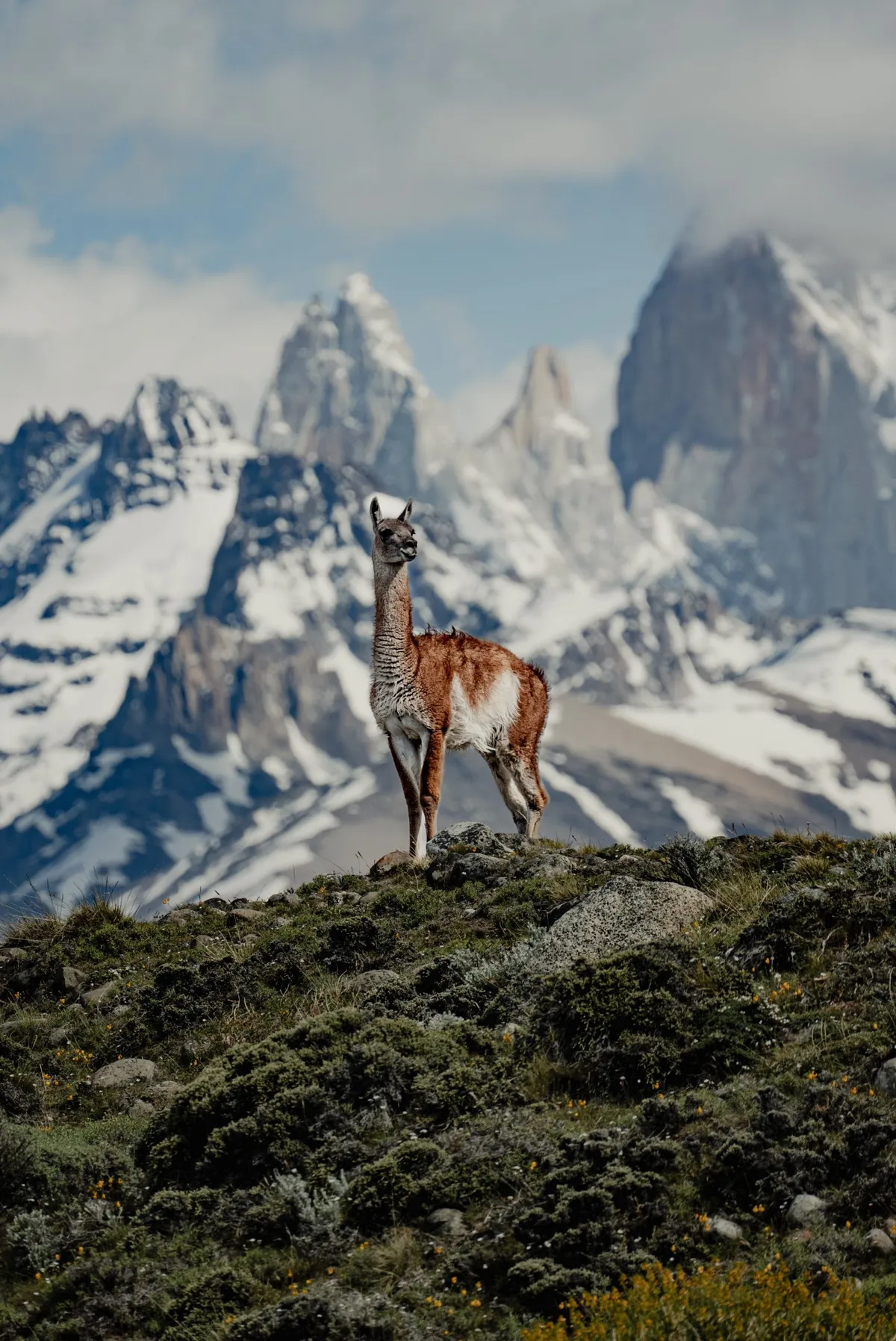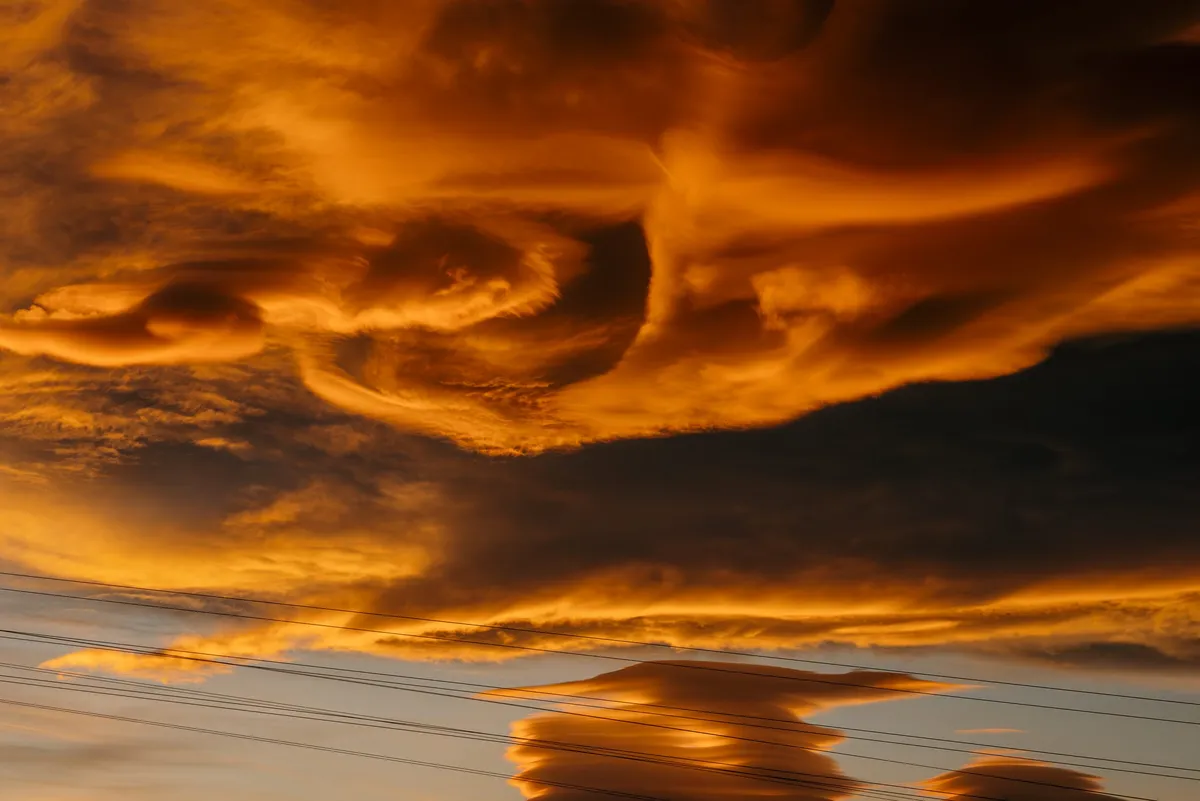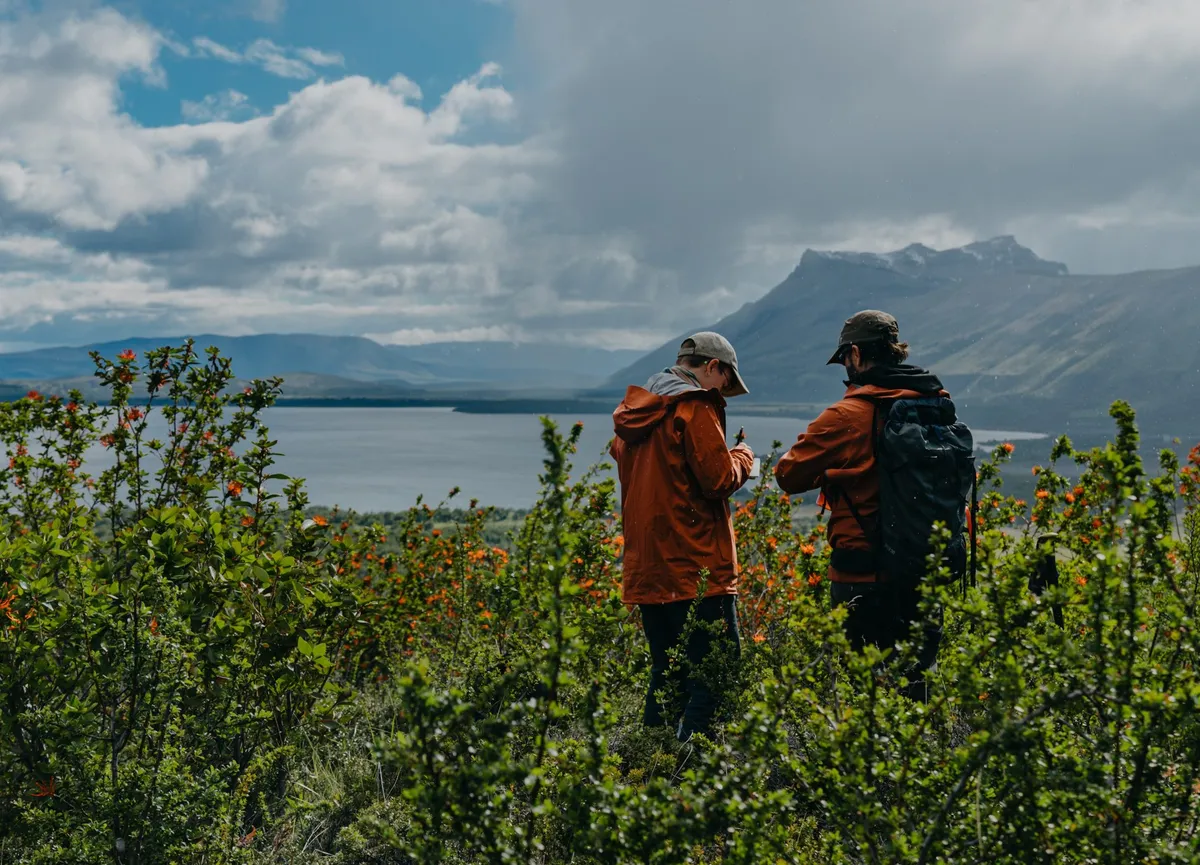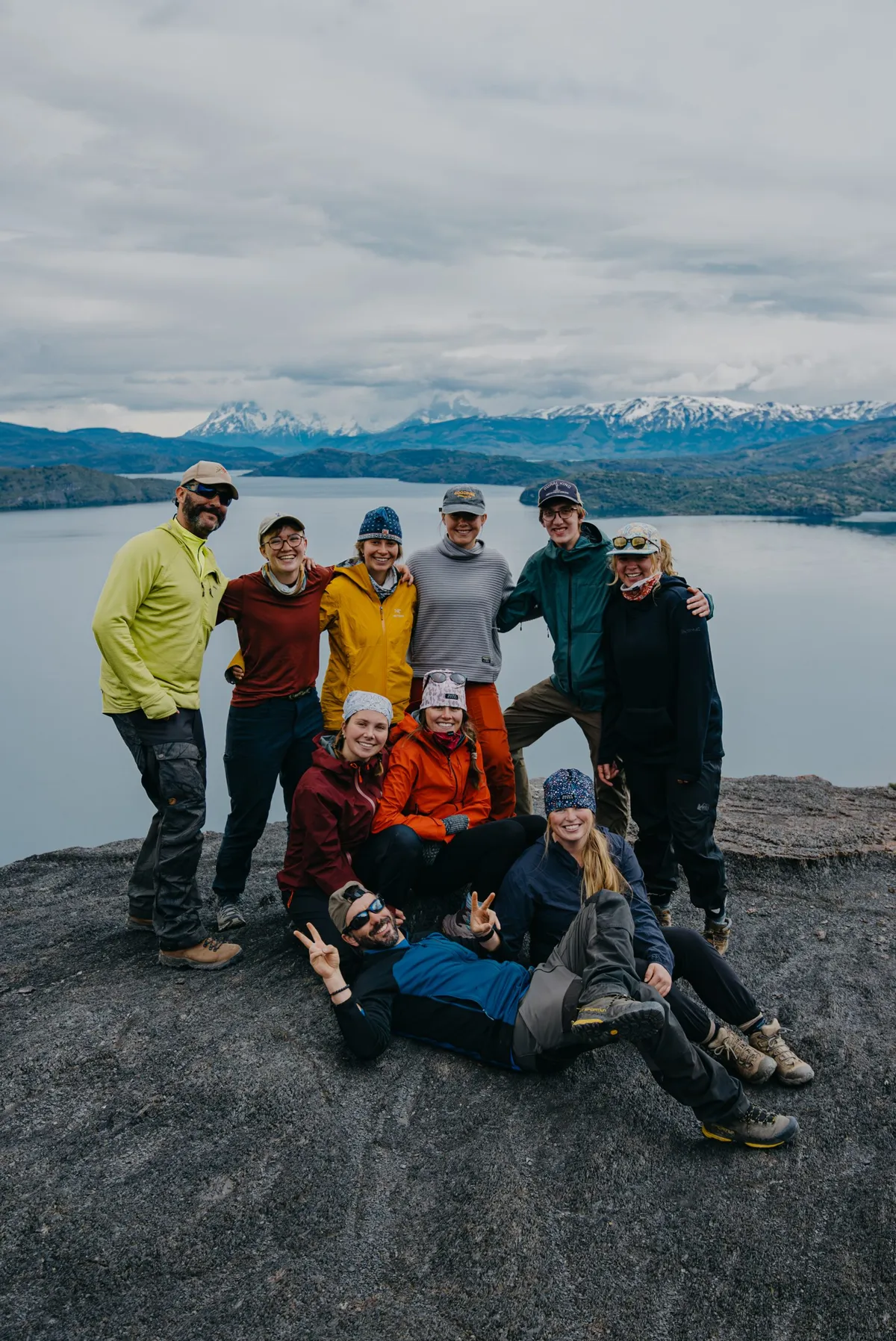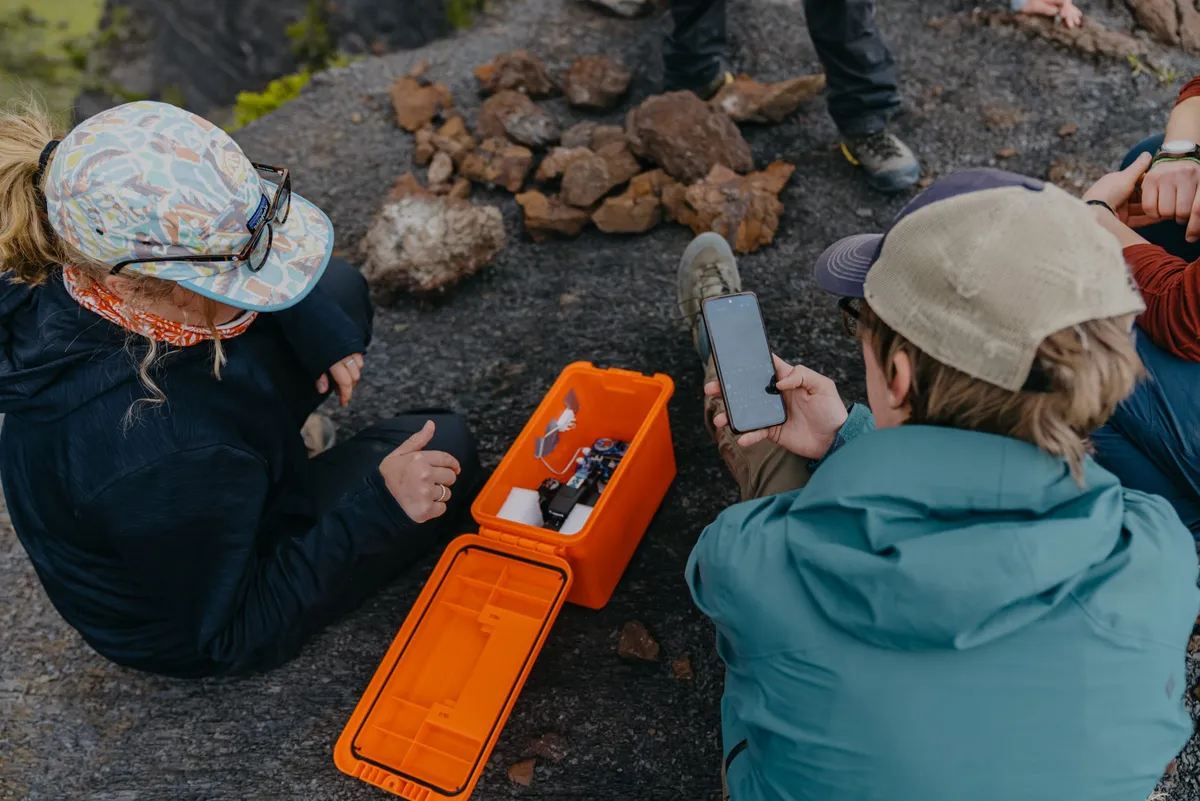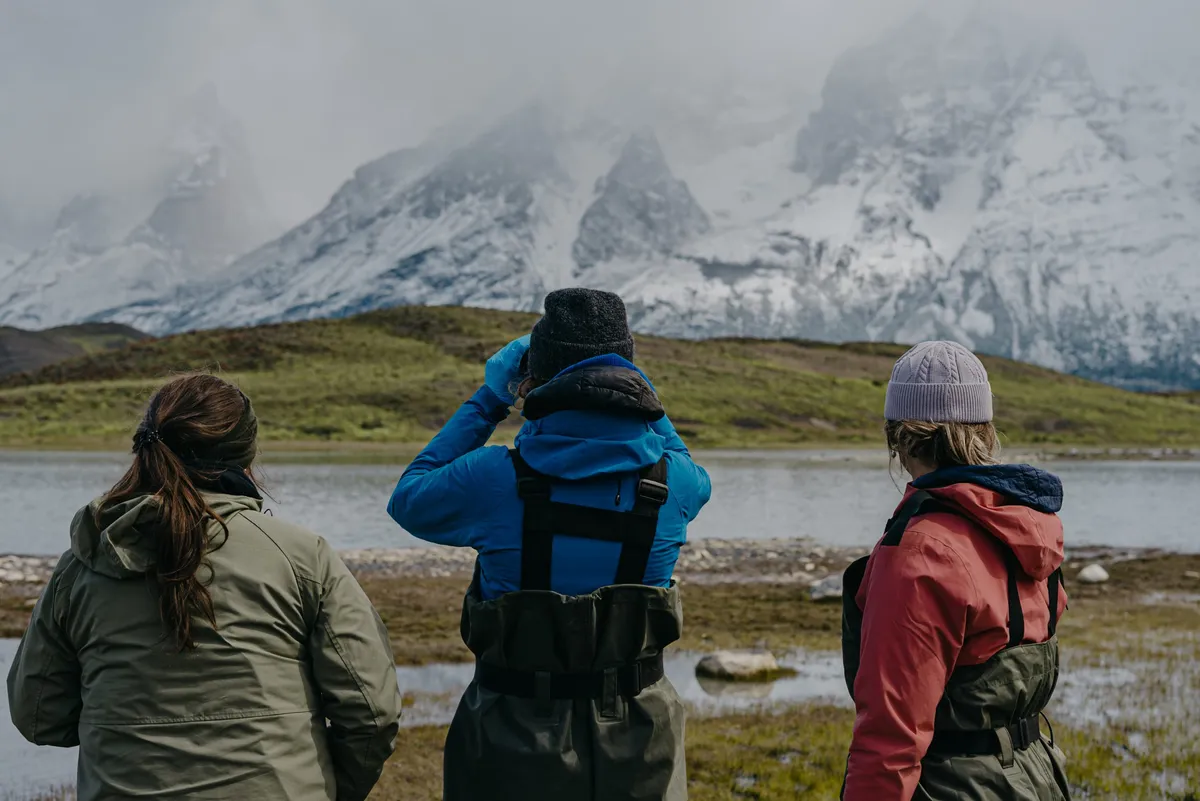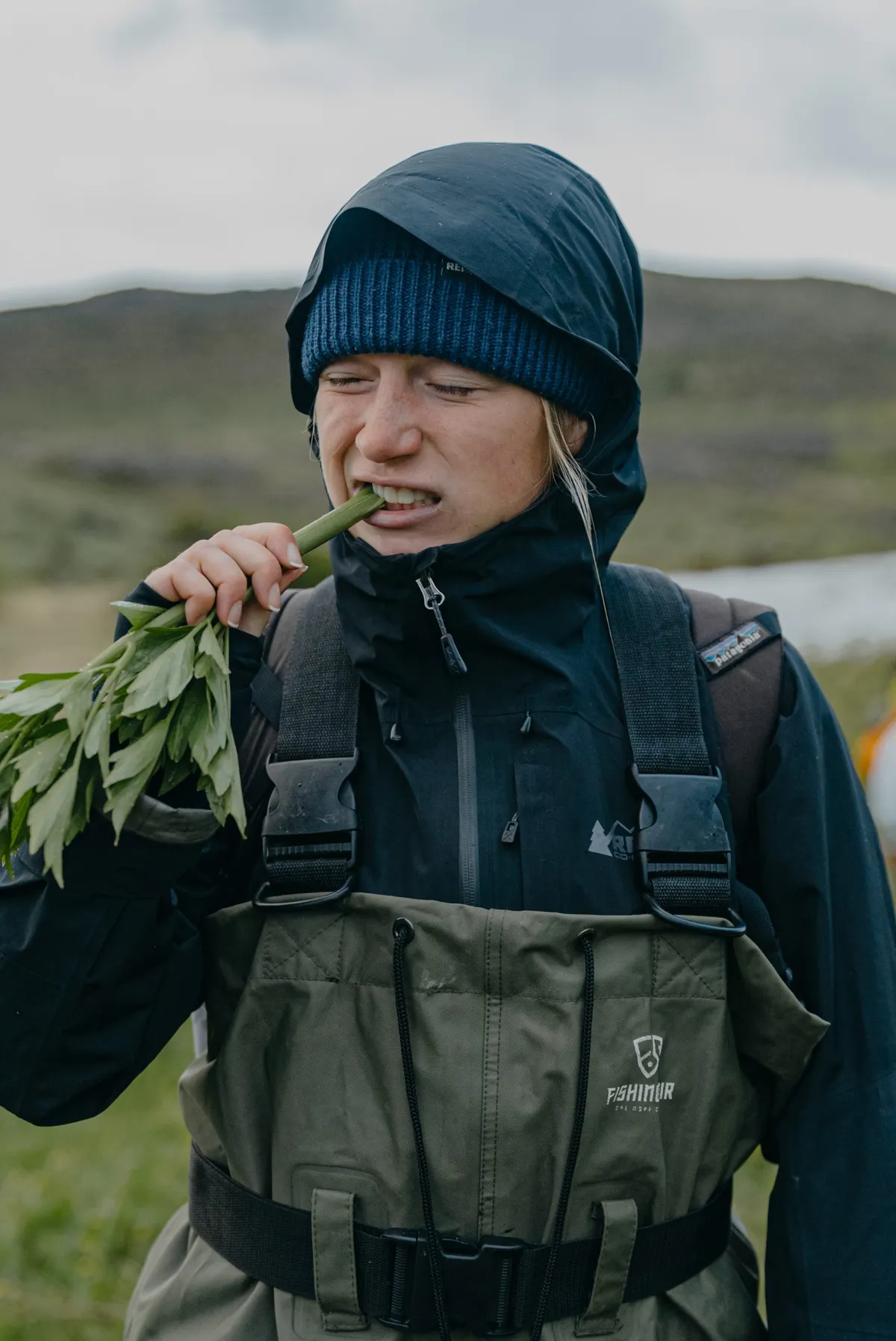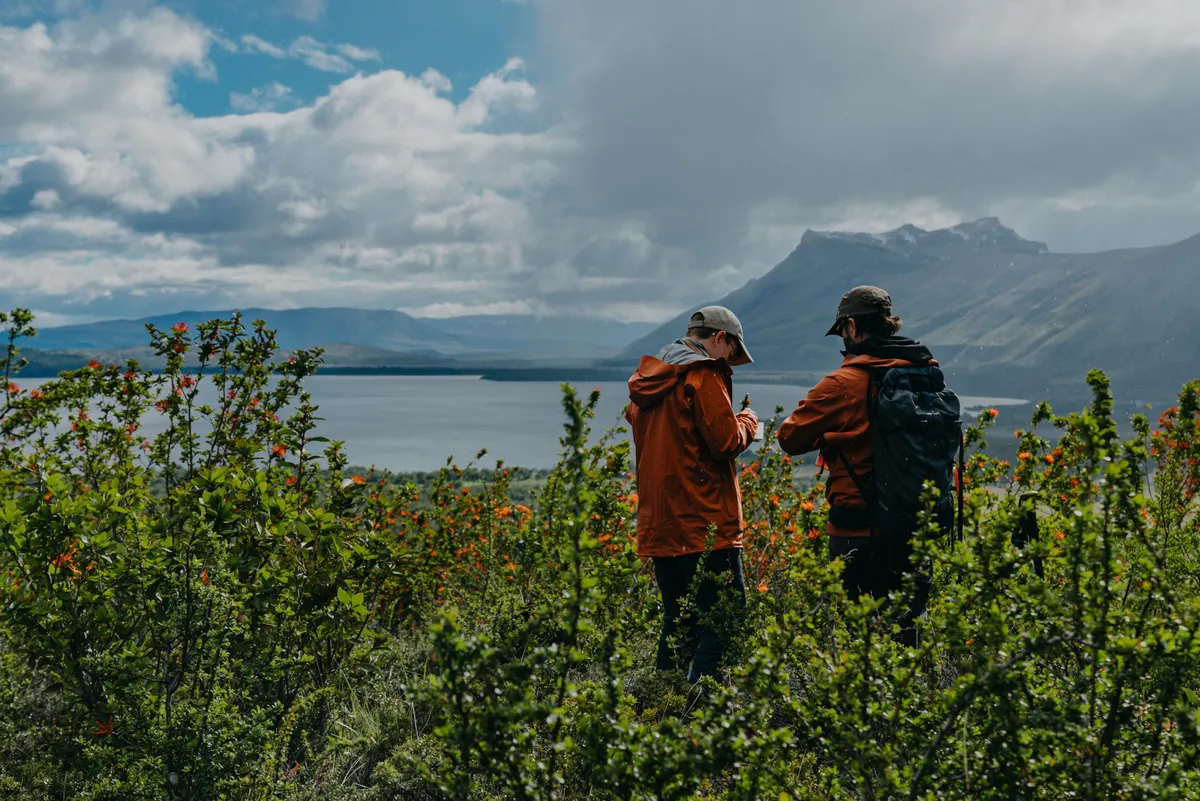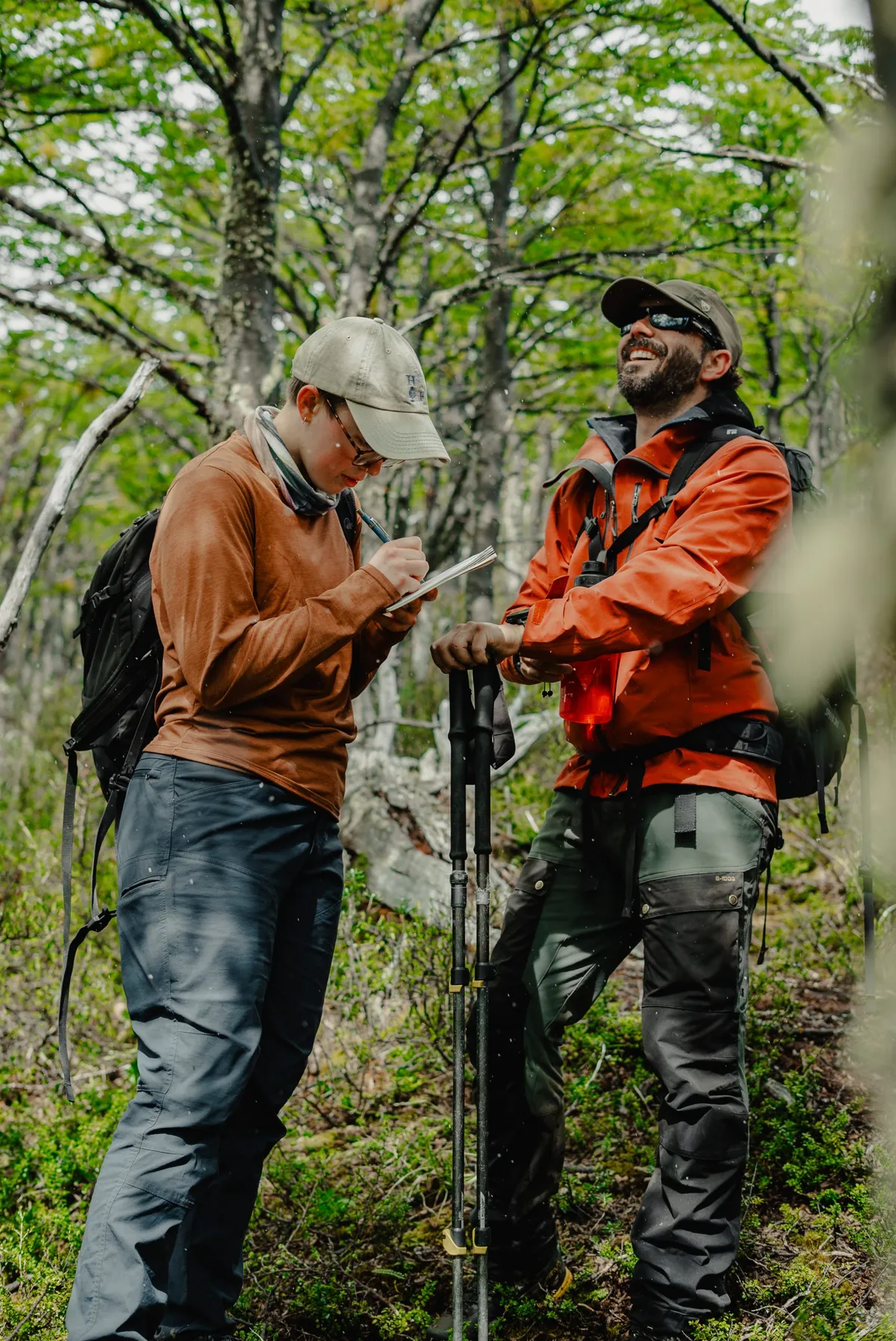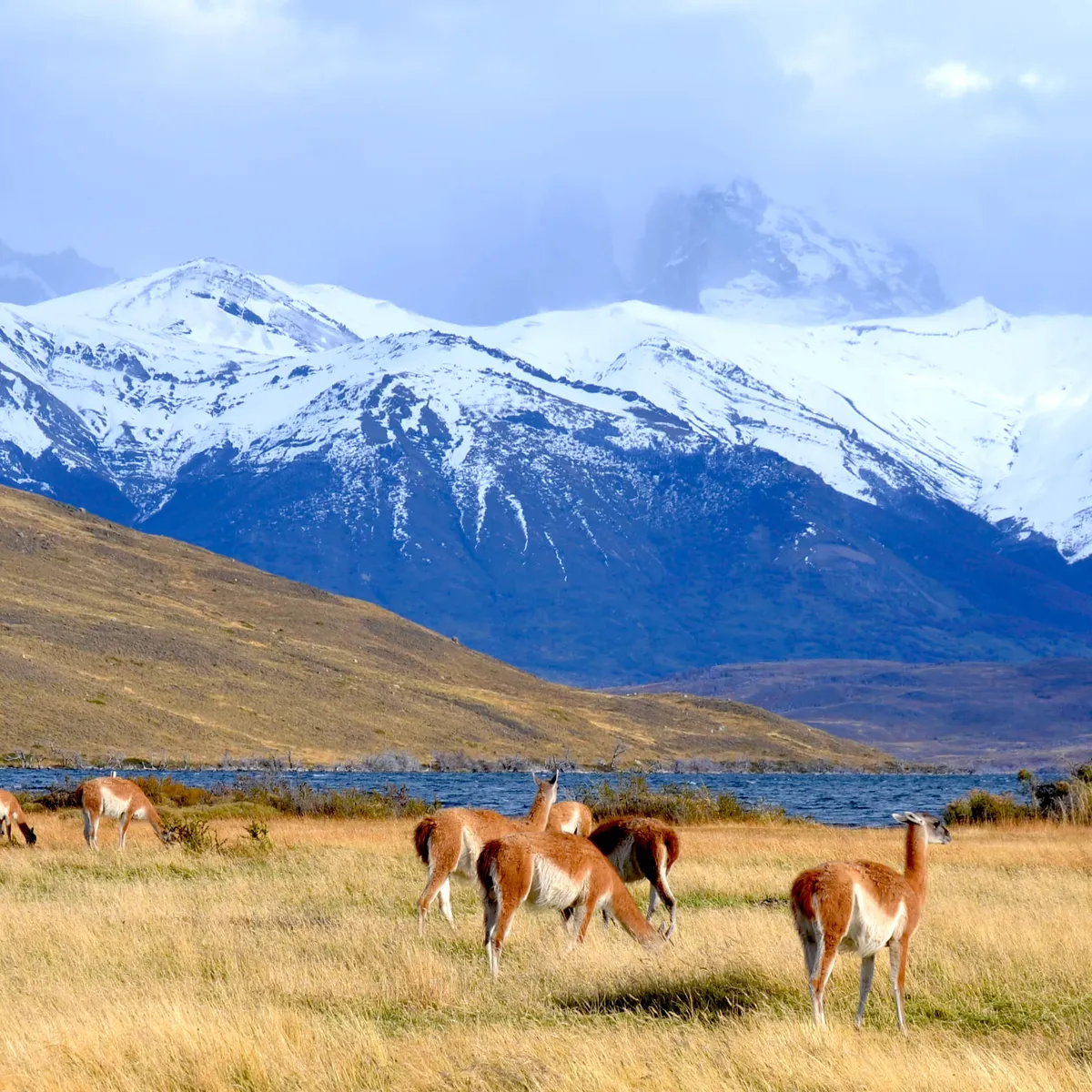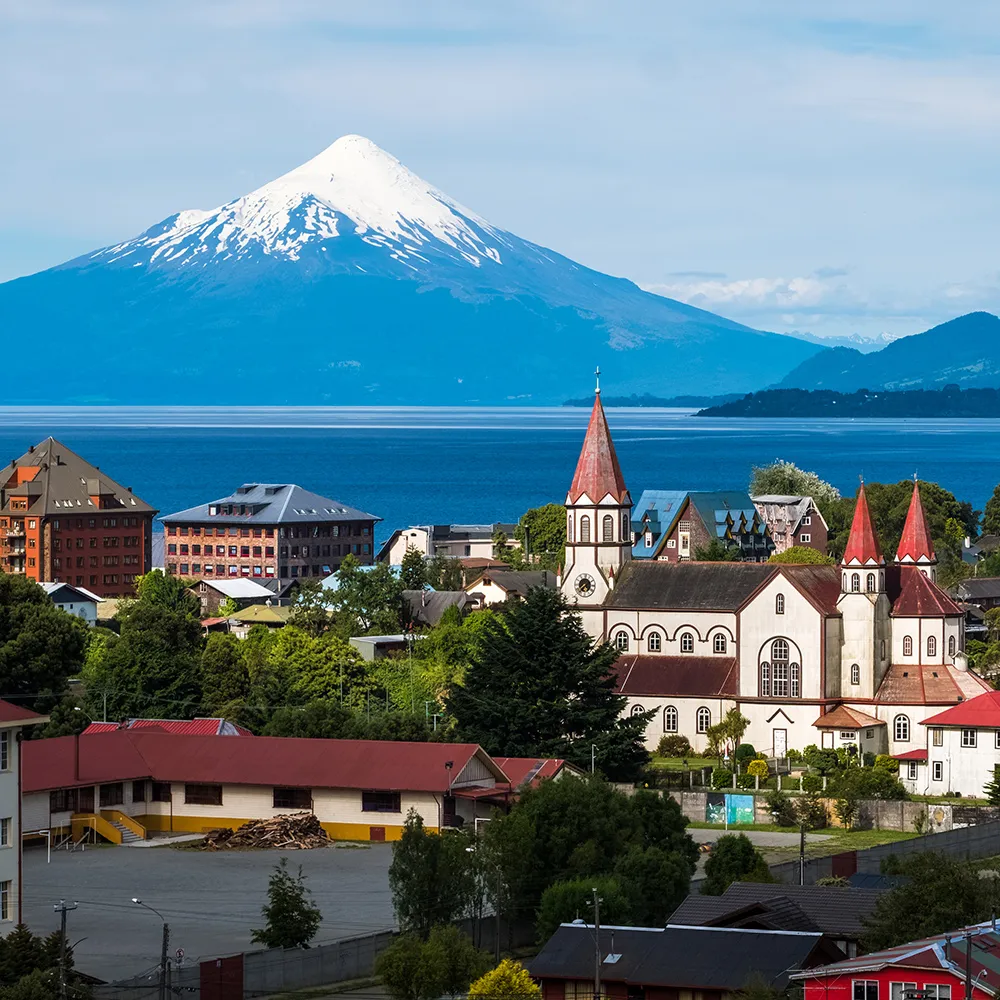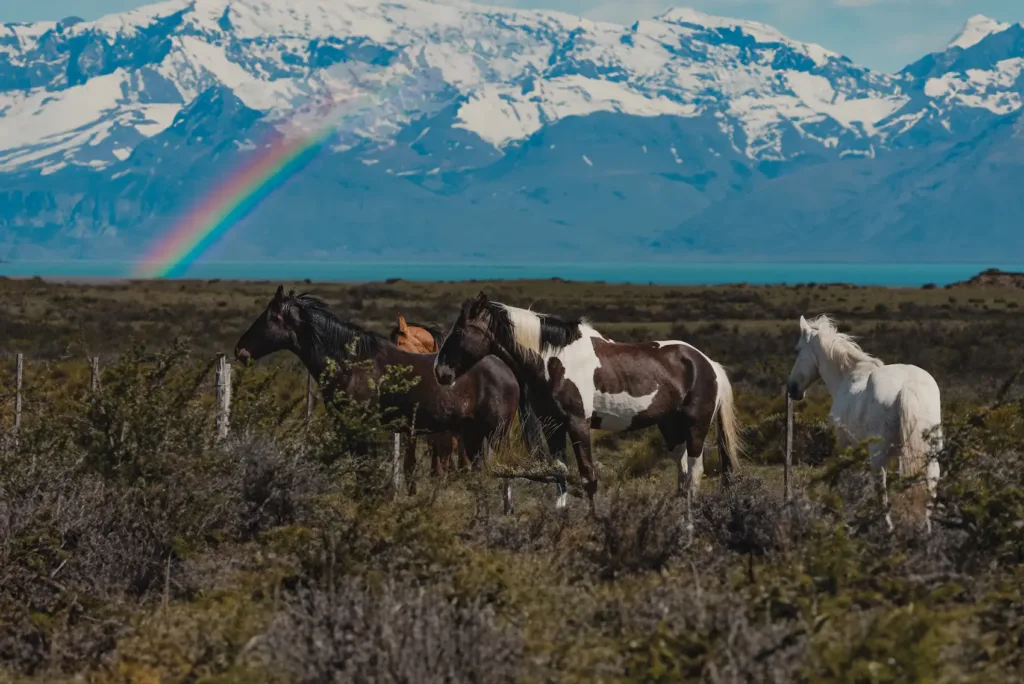
Program Costs
- Tuition
- Room & Board
- Total
Application Deadlines
Resources
Wild Patagonia: Fire and Ice
Students conduct fieldwork across vast icefields, open skies, and coastal systems where seabird populations reflect changing marine dynamics. Their boots crunch on glacial moraine as they measure retreat, survey wetlands, and map how climate shifts ripple through forests. Expeditions to Torres del Paine, Isla Magdalena, and Tierra del Fuego reveal a region revered as one of the world’s last wildernesses, yet vulnerable to resource pressures and accelerating global change. Glaciers, forests, and coasts become field texts, showing that conservation is not a triumph preserved, but a struggle to safeguard Patagonia’s living landscapes, where students also celebrate thriving penguin colonies, resilient forests, and the awe of wilderness largely intact.
- Map glacier termini in Torres del Paine with GPS transects and paired satellite images, tracking seasonal retreat patterns for climate and water resource analysis.
- Census Magellanic and king penguins in Tierra del Fuego, recording clutch size, disturbance zones, and banded individual sightings.
- Learn from Selk’nam language keepers about revitalization linked to seasonal hunting grounds, contributing to a shared cultural archive.
- Evaluate tensions between fjord conservation zones and salmon aquaculture livelihoods through mapped sites, ecological data, and local testimonies.
- Conduct Directed Research: frame a stakeholder-driven question, collect and analyze field data with faculty guidance, and present actionable findings to local partners.
Academics
This academically rigorous program follows a six-day/week schedule. Each program combines theory learned during classroom sessions with field-based applications. The interdisciplinary curriculum is designed to help students actively discover and understand the complexities of environmental, social, and economic issues in Chile.
Major academic themes include:
- Climate change impacts and resilience
- Glacial and freshwater dynamics
- Geology and volcanic activity
- Penguin behavior
- Endangered species protection
- Coastal and alpine ecology
- Conservation strategy and practice
- National park visitation and protected areas management
Courses
On the Wild Patagonia: Fire and Ice program, you will take three 4-credit disciplinary courses, one 2-credit language and culture course, and a 4-credit capstone Directed Research course. Courses are participatory in nature and are designed to foster inquiry and active learning. Each course combines lectures, field exercises, assignments, tests, and research. All courses are taught in English.
Language, Culture, and Society of Chile
This course will provide two lines of interfacing with Patagonia, connecting you with the language and culture in Patagonia, learning some of the linguistic variety at the Southern edge of the Americas, exploring the historical‐cultural contexts of that vocabulary, and learning about the cultural shifts that have defined the region, from before Magellan’s voyage through the Strait in 1520 through to voting for a new Constitution.
With the examination of today’s society through its language and culture through transversal themes, you will have a chance to reflect on various social contexts. This can help you develop a well‐rounded understanding of Patagonia as a cultural space, which simultaneously overlies, intermingles, and undergirds the physical, ecological, and political processes covered in the other courses.
Political and Social Dimensions of Conservation
This is a very transformative time in Chilean conservation management. During 2022, the Chilean Constitutional Convention developed a draft new constitution, which includes a serious focus on environmental and natural resource conservation. On September 4th, 2022 the plebiscite decided to reject it. So, many local researchers, and practitioners in different conservation areas are concerned about the implications of it an effective conservation process. In another hand, many media outlets, such as CNN, the New York Times, and The Economist have had recent profiles on the influence of foreign private entities largely shaping the conservation scene in Chile. This course explores the decision-making apparatus within Chile and delves into the complexity of what societies decide to conserve, why societies decide to conserve or not, which places/things we choose to conserve or not, what the cost is (in human capital, economic capital, and to ecosystem services) when we choose to conserve or not, and who ultimately are the power brokers of the conservation movement in Patagonia (corporations, government entities, NGOs, foreigners, etc.), and by extension, how do the Chilean conservation management objectives and operations map onto the broader world stage? This course will stimulate debate and exploration and send students home with unprecedented insight.
Earth Systems and Climate Science
This course provides an overview of the Earth Systems – geosphere, cryosphere, hydrosphere, and atmosphere – the dynamic interactions between them, and the unique characteristics that these components display in Patagonia. The course covers Systems Theory, the overall characteristics of each system, and why we should think of the Earth as a system that is more than the sum of its parts. We will examine all systems in detail and find the relationship between them and switch the different time scale over which they operate. The course emphasizes the cryosphere and climate science and how these components interact in Patagonia and what will happen with them under climate change scenarios.
Patagonian Ecology
This course focuses on ecology as a discipline, biodiversity, and the Patagonian ecoregions and habitats that have evolved with short growing seasons, tenacious southwesterly winds, and fierce winters. We will examine the ecology and evolution of faunal species such as guanaco (related to the llama), Magellanic and king penguins, and the Andean condor, all native to the region. We will explore ecological succession, including primary succession, which is how life recruits into new environments, such as bare rock after glacial retreat or after volcanic eruptions. We will explore a remarkable climatological gradient from Magellanic rainforests to semi-arid pampa. Thematically, we will traverse alpine ecology, exposed terrestrial ecology, freshwater ecology, fire ecology, and climate change ecology. From the central focus on the theory and practice of ecology, we will expand to investigate relationships between people and nature in conservation, resilience, and environmental challenges. We will explore the role of protected areas in conservation, invasive species, and human-landscape interactions. The course is constructed so that the role of climate in shaping ecosystems and ecological relations are central to discussions and observations.
Directed Research – Chile
This course prepares students to distinguish hidden assumptions in scientific approaches and separate fact from interpretation, cause from correlation, and advocacy from objectivity. Students learn specific tools including: experimental design; field techniques; basic descriptive statistics; and parametric and non-parametric quantitative analysis. Emphasis is placed on succinct scientific writing, graphic and tabular presentation of results, and effective delivery of oral presentations.
Core Skills
You will gain practical skills in the field such as: terrestrial and freshwater biodiversity assessments, GIS, water quality assessments, biodiversity survey techniques, species ID and population monitoring, natural resource valuation, landscape and soils analysis, research design and implementation, quantitative/qualitative data collection and analysis, scientific writing and communication, basic Spanish language skills.
Field Sites
You will visit different ecosystems and communities, which may include glaciers and ice fields, fjords, coastal villages and port cities, glacial lakes and rivers, sub-polar broadleaf evergreen forests, prehistoric cave paintings, pampa grasslands, peatlands, penguin colonies, and popular national parks.
Other Chile Programs
Wild Patagonia: Fire and Ice
More Information
Program Costs
- Tuition
- Room & Board
- Total
The Patagonian Winter
More Information
Program Costs
- Tuition
- Room & Board
- Total

